Virtual Biome:
Exploring The Definition of Life, Self-Organization, and Artificial Intervention
Creative coding web minigame, Printings, Essay
Jan 2023 - April 2023
Click here to read the essay
Click here to play: Amoebas-with text and more web interaction
Click here to play: Amoebas, pure web mini game
Using Object-Oriented Programming (OOP), p5.js, and HTML languages, I created virtual amoebas with individual differences and responses to external stimuli. The addition of dynamic Perlin noise, random crawling trajectories and sound input imbues these simple shapes with lifelike qualities, stretching the definition of "creature" and exploring the boundaries between life and artificial constructs. As if experiencing a biological stress response, they tend to communicate with each other by changing color and connect by a line when in proximity, like exchanging pheromones. If user clicking on the screen, yellow dots generate as food, the amoebas would moving towards them, consuming them, and get bigger. The interface provides buttons to let human clear food, add creatures, kill them, or restart the life game. Codes looming on the screen reveal the inner nature of these virtual creatures.
Witnessing these virtual amoebas, which possess primitive structures and simple logic of activity, yet can develop intricate and splendid forms and efficiently transmitting "nutrients" or "pheromones," challenges human arrogance in assuming superiority and invites us to reconsider the definition of life. Drawing inspiration from post-humanist and "decentering humanity" approaches, this article seeks to demonstrate the creative endeavor, concomitantly the theoretical background and philosophical inspiration behind my project’s materialization. In a more tangible sense, these work will primarily focus on the examination of boundaries between organic and inorganic entities, the emergence of self-organization, and the potential implications of human involvement in the creation of artificial life forms. Finally, this work also tries to demonstrate the rationale of my practical process.
Process
Another version of Amoebas, use Openframeworks(written in C++ language)
Printings

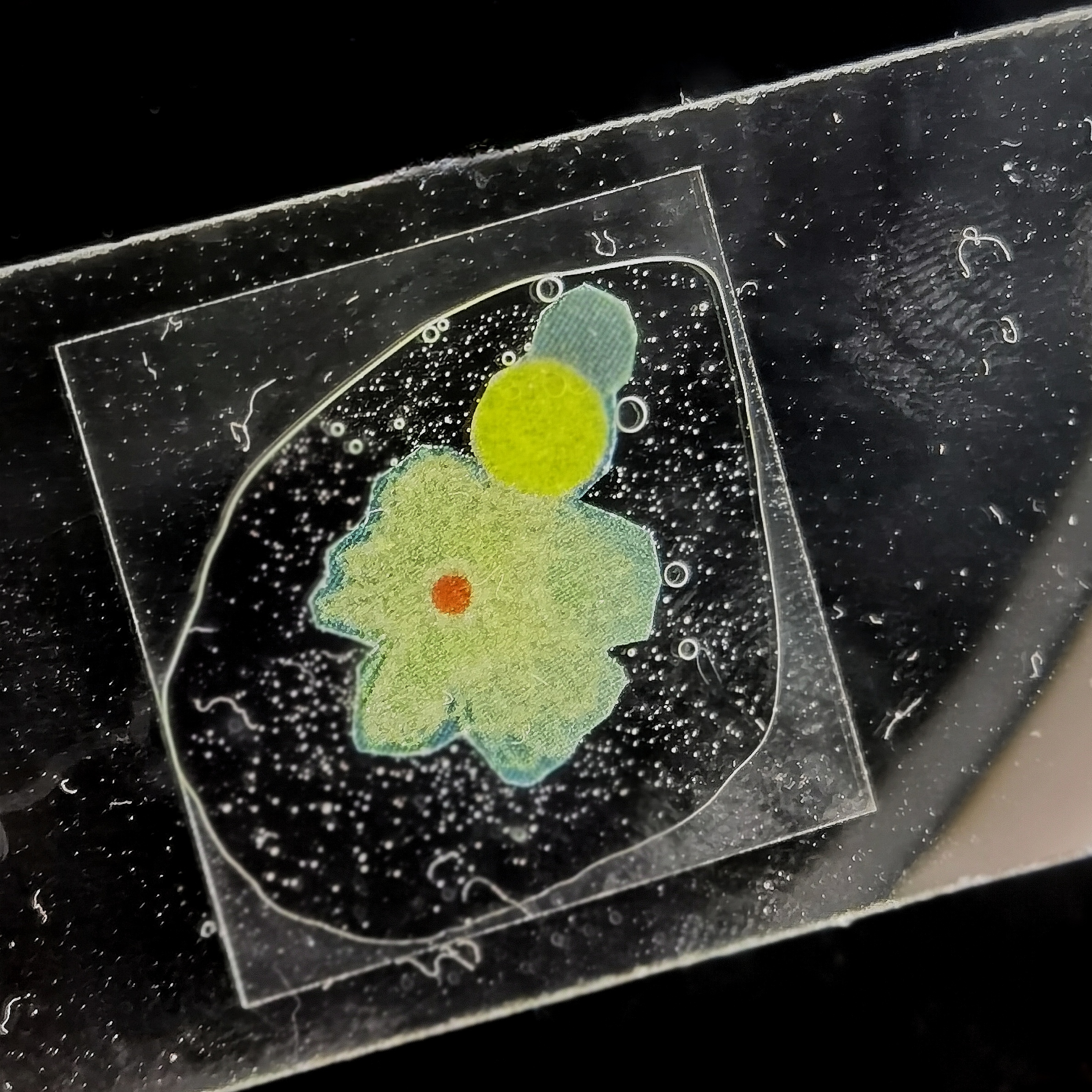
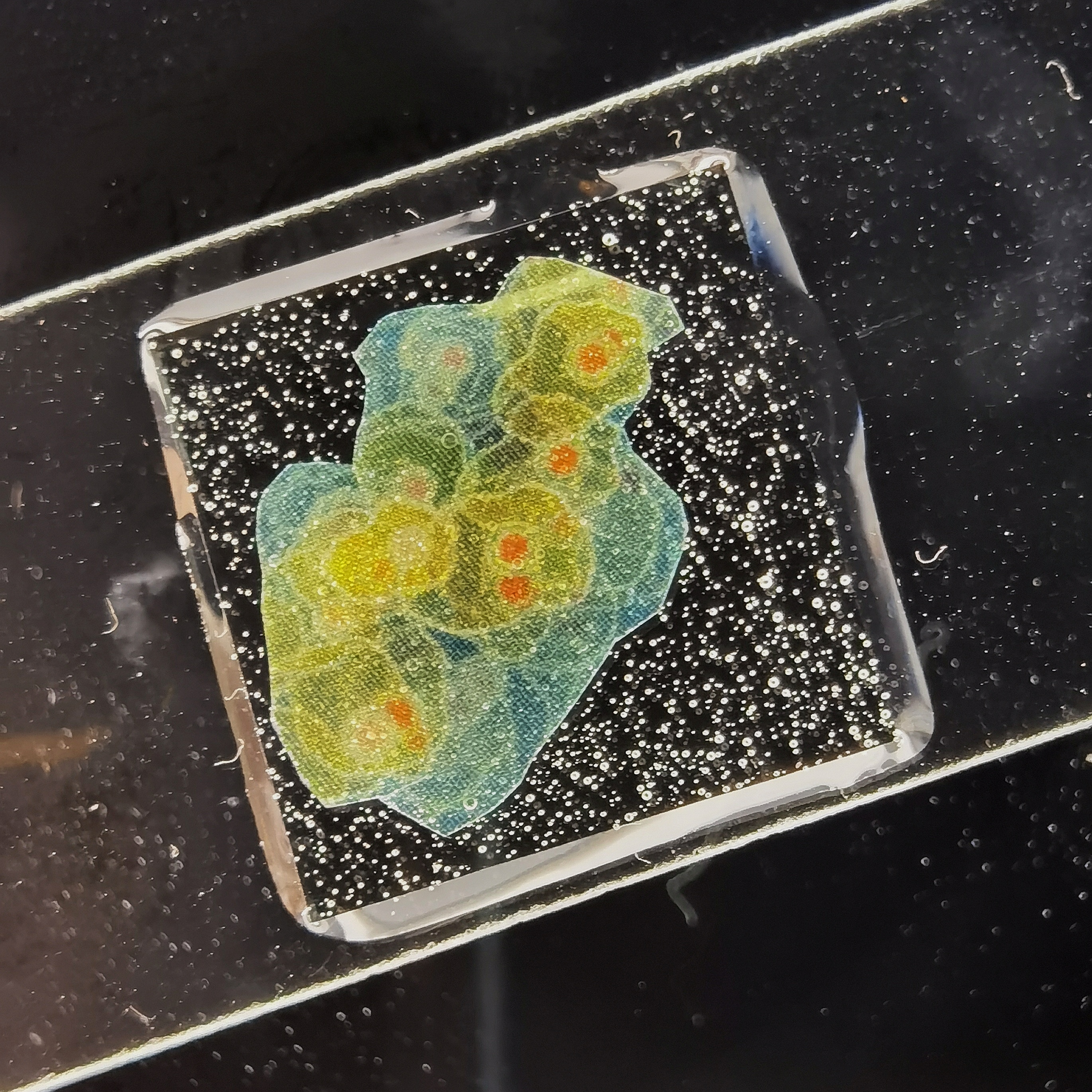
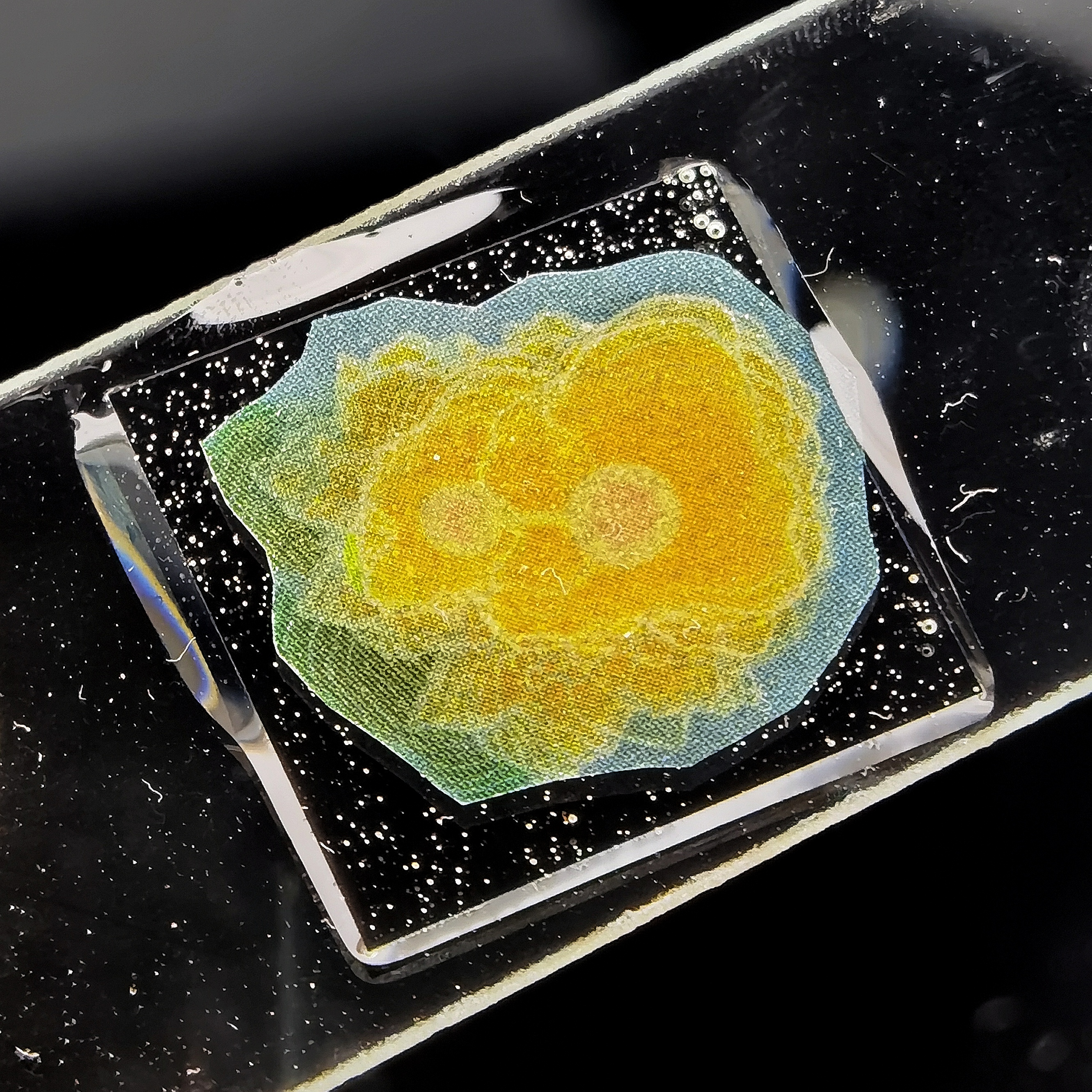
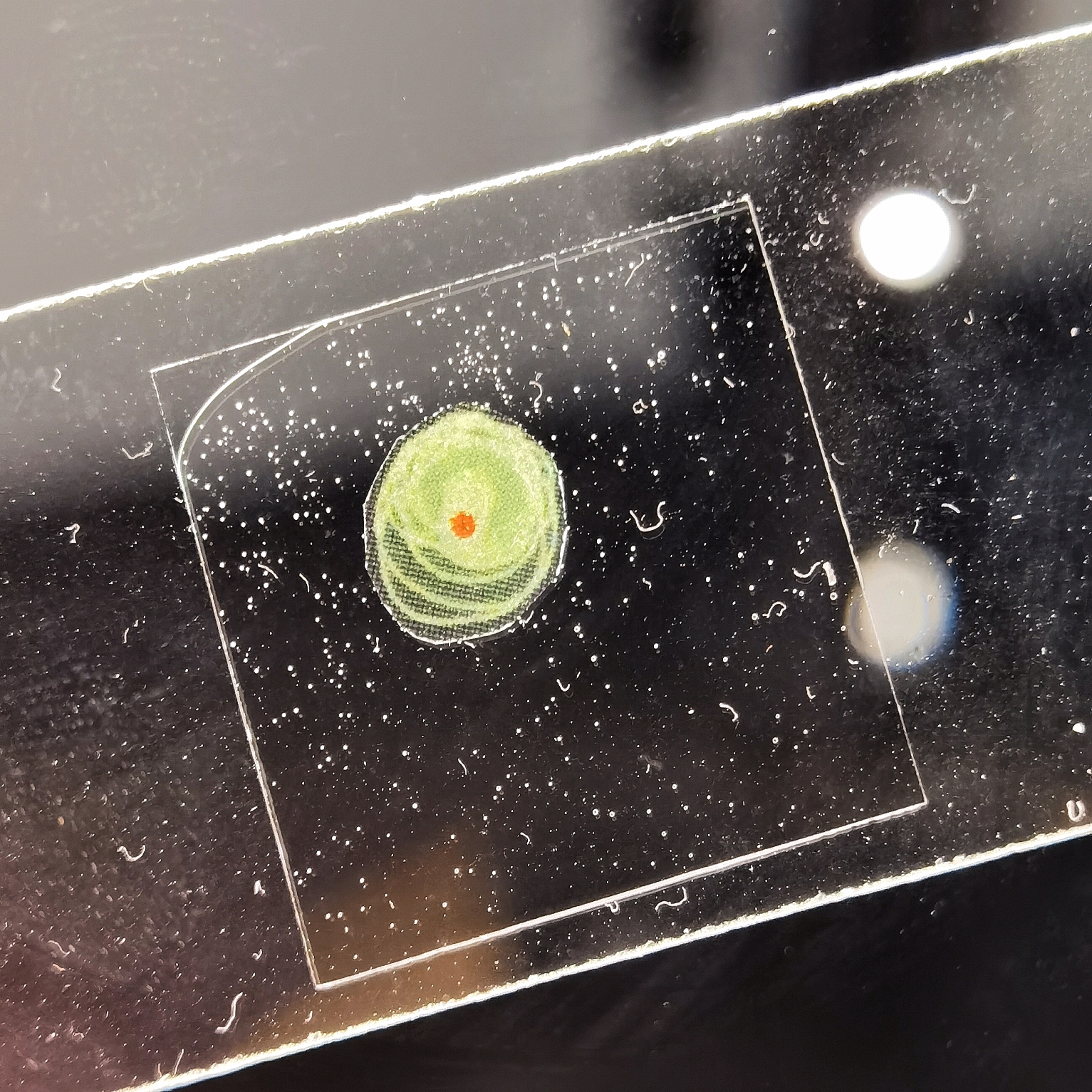
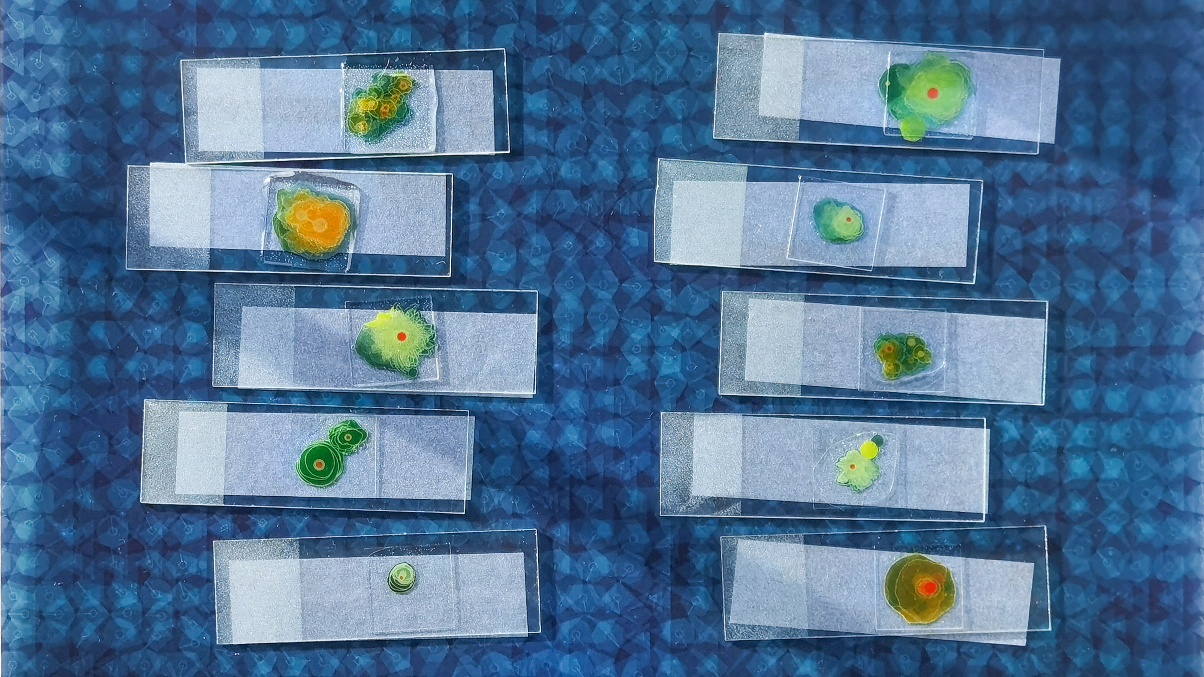

Reflection and Conclution
Several new thought-provoking questions emerge: Does the
created amoeba cluster possess any form of subjective consciousness? Are these virtual life forms
merely “illusions” generated by computer algorithms and random numbers?
From the perspective of "things," these virtual creatures may appear passive, merely accepting their
programmed interactions and states. However, as these interactions and states grow increasingly
complex, how do we define the concepts of "life" and "death"? And as we write programs to create
these virtual entities, does the “mind” live in our own brain follow a similar set of
processes?
In conclusion, These questions serve as a reminder that our understanding of life, consciousness,
and the boundaries between the organic and inorganic world continues to evolve. I will, as always,
keep an open mind and continue to explore in the field of biology and life.
References
Shiffman, D. (n.d.). p5.js Web Editor. [online] editor.p5js.org. Available at:
https://editor.p5js.org/codingtrain/sketches/sy1p1vnQn [Accessed 1 May 2023]
p5js.org. (n.d.). examples | p5.js. [online] Available at:
https://p5js.org/examples/simulate-particles.html [Accessed 1 May 2023].
Shhiffman, D. (2009). The Nature of Code. [online] Natureofcode.com. Available at:
https://natureofcode.com/book/chapter-9-the-evolution-of-code/.
Wiener, N. (2013). Cybernetics or control and communication in the animal and the
machine.
Mansfield Centre, Ct: Martino.
Bennett, J. (2009). Vibrant Matter A Political Ecology of Things. Duke University Press.
Langton, C.G. and Katsunori Shimohara (1997). Artificial life V : proceedings of the
Fifth
International Workshop on the Synthesis and Simulation of Living Systems. Cambridge, Mass.: Mit
Press.
Slava Gerovitch (2004). From newspeak to cyberspeak : a history of soviet cybernetics.
Cambridge,
Mass.: Mit Press.